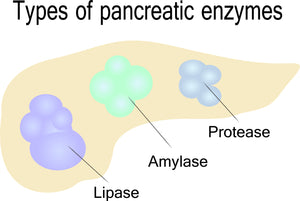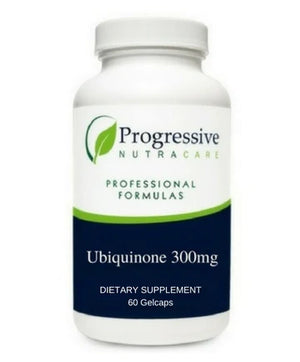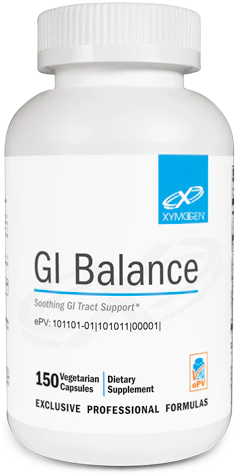Smooth moves- making smart smoothie choices

America is in love with blended drinks. From Frappuccinos, to breakfast smoothies, to milkshakes. While almost everyone knows that milkshakes are mostly empty calories and should be reserved as an occasional treat and that blended coffee drinks aren’t likely to contribute to your overall health, smoothies have been touted for their health benefits- as meal replacements or as supplemental to a healthy diet. Attracted by the claims of health, we are drinking more smoothies than ever, often as a meal replacement for breakfast. So, is it a smart choice to rely upon smoothies as a meal replacement, or as an additional way to add protein, vitamins, or other nutrients to your diet? The answer is yes- if done right. The culprits in most bad smoothie choices are too much sugar and too little fiber. Avoid those pitfalls, and add in the right nutrients and health enhancers, and you are on your way to a healthy meal or snack.
Preparing your own smoothie, rather than buying one premade at a store or restaurant can help you stay on the right track. Retailers have jumped on the smoothie bandwagon, and many tout their health benefits, but caveat emptor! The American Heart Association recommends that men should have no more than 36 grams of added sugar per day, and no more than 25 grams for women, while the Mayo Clinic says that men should try to consume at least 30-38 grams of fiber a day, and women 21-25 grams of fiber a day. Mayo also says that men and women should get anywhere from 10-35% of their calories from protein every day, depending upon their specific dietary needs, like how sedentary you are. That means that if you should consume an average of 2,000 calories a day, you’ll need between 50-175 grams of protein. Fiber and protein are particularly important in a smoothie because those two ingredients not only fulfill dietary needs, but they help you to feel full when consuming a liquid. Starting with whole fruit and adding appropriate protein sources and extra fiber can be ideal for a breakfast smoothie because it can help you to feel full until lunchtime. If you plan on eating a lower protein lunch or dinner, like a salad, then adding extra protein to your smoothie may be a smart move. Preparing your smoothie at home will also allow you to customize your flavor profile more to your liking, cut costs, and allow your own dietary mix-ins.
There are some truly awful smoothie choices out there. Dairy Queen’s Tripleberry Premium Fruit Smoothie, for example, has 470 calories, 170 mg sodium, 102 grams of sugar, and just 2 grams of fiber and 6 grams of protein. That’s more sugar than any of their Blizzards! McDonald’s mango pineapple smoothie has 340 calories, 60mg sodium, 72 grams of sugar, 0 grams of fiber, and only 4 grams of protein. Definitely not intended as a meal replacement, and the 0 grams of fiber means there is no whole fruit in the concoction. Well, one might expect fast food chains to fail at delivering nutritionally fulfilling smoothies, but what about the “specialty” smoothie shops? Do they do any better? If you choose carefully, you can find something acceptable, but choose poorly and you’re basically having an ice cream sundae for breakfast. The Jamba Juice Peanut Butter Mooed Smoothie has 910 calories, 28 grams of fat (5 of them saturated), 429 mg of sodium, 119 grams of sugar, 7 grams of fiber, and 29 grams of protein. You’re getting your protein, but at the cost of more sugar than 8 twinkies! Hardly a recipe for a fitter you. Working out and trying to bulk up? Maybe you’d go for the 40oz The Hulk Strawberry. This monster has 1,770 calories, 64 grams of fat (half of which are saturated), 256 grams of sugar (183 of which is added sugar), 780 mg of sodium, 14 grams of fiber, and 49 grams of protein. You’re definitely getting your protein with this one, and some fiber since it is made with whole fruit, but now we’re at 17 and a half twinkies worth of sugar, and almost your entire calorie count for the day- without the nutrients to justify it! Planet Smoothie wants you to jump on the immune boost bandwagon with the Planet Smoothie Captain Immunity. It does come dosed with vitamin C, but the large size (44oz) also contains 760 calories, 280 mg of sodium, and 125 grams of sugar. It does have just 1 gram of fat, is made with whole fruit, has 10 grams of fiber, and 25 grams of protein. Still, that’s an awful lot of sugar- and not enough fiber for such a huge drink.
Why do these drinks have all of this sugar in them? Well, the colder a food or drink is, the more sugar is needed for the body to perceive the sweetness. It’s why there can be such a shocking amount of sugar in ice cream, and why Frappuccinos have more than 50 grams of sugar each. Sugar is cheap, and most of us have a sweet tooth. There are sugar alternatives like stevia or monk fruit sweetener that can be far healthier, but good luck finding one at a smoothie shop. Not only is sugar merely empty calories, contributing nothing nutritionally but calories, but according to Harvard Health, added sugar contributes to chronic inflammation, higher blood pressure, weight gain, diabetes, fatty liver disease, and is linked to a higher risk for heart attack and stroke. Remember that all of the commercial smoothies mentioned above have added sugar- often a lot of it- in addition to any that comes from whole fruit and dairy.
What about fiber? Why do these commercial smoothies have so little in general, and why does it matter? Many smoothies don’t start with whole fruit, and those that do either don’t add enough or overwhelm them with sugar and dairy. Green smoothies exist, made from veggies, and these can be better, but still have far too much sugar. Look for smoothies made with whole fruit or greens and avoid extra additives. Even with that approach, you may be tricked into too much sugar at the smoothie shop, especially when considering that some fruits are very high in sugar content, and additives like dates, honey, and agave should be accounted for as. There still may not be nearly enough fiber. Your best option is to make your own smoothie at home. According to the Mayo Clinic, fiber is necessary for bowel health, lowers cholesterol levels, helps control blood sugar levels, and helps achieve a healthy weight. Too little fiber can also risk elevating risks for colon cancer, diverticulosis, and other diseases of the digestive system.
Okay, you might say- I know that the sugar isn’t healthy, but what about all of the add-ins available at the smoothie shop? Don’t those makeup for it? Well, to start with, take the example of the immune smoothie from Smoothie King mentioned above. It has added vitamin C to boost immunity, right? Unfortunately, sugar can suppress the immune system, not just in the long term, but immediately. According to the Cleveland Clinic, it takes about 75 grams of sugar to lower immune response for a 5-hour period. Meaning that not only is the immune boost from that vitamin C in the Smoothie King smoothie lost by all of it’s sugar, but likely along with the immune boost provided by other supplements you may have taken, the add-ins available at the smoothie shop, and that carefully planned eight hours of sleep you got last night. All mitigated by that sugar-laden smoothie. As for the other benefits of those ad-ins? The two main concerns are that you don’t have any guarantee of how those products are sourced, and therefore of what their quality are, and you don’t know if they are used in amounts that provide any real benefit. You should also make sure that some additives, like protein powders, aren’t further sweetened or made from ingredients you might be allergic to, like dairy products.
So what’s a reasonable solution? To start with, if you plan on having a smoothie out at a smoothie shop, fast food restaurant, or coffee shop, plan for it to be an occasional treat and not a usual occurrence. Order a small size, watch sugar content and additives like a hawk, insist on whole fruit, or better yet, vegetables, and don’t plan on it being a meal replacement unless you can really get it right. For smoothies to be a part of a daily healthy diet, make them at home, and make them right. Use whole fruit or vegetables, use monk fruit rather than sugar, and use a lighter style of dairy or an unsweetened dairy alternative to replace milk and yogurt, like soy, almond, cashew, hemp, or oat milks. Why monk fruit? Monk fruit is a zero-calorie sweetener with no bitter taste that has been judged as Generally Regarded as Safe (GRAS) by the FDA, and has been used for centuries as a sweetener. The sweetener is zero-glycemic and the mogrosides in the fruit are thought to be anti-inflammatory and good for the gut. Use fruits like banana to add sugar instead of sweeteners. Better yet, slowly decrease your sugar content to change your palate. Add 1/2 a banana and more berries. Add fiber at home. Chia seeds, hemp hearts, and psyllium are readily available and add a lot of nutritionally sound fiber. Lastly, add a good quality protein powder, extra fiber, and other mix-ins as needed. Make up some batches and drink them in the morning or bring some with you for a meal replacement.
Want the ultimate solution? Make your own smoothie with whole fruits or vegetables, fiber additives of your choice, and whichever liquid base you wish that is low calorie, and then add a quality protein powder already sweetened with monk fruit that also contains additional fiber and other nutritional add-ins from a trusted source. We highly recommend the Foundation Gut, Foundation Metabolics, Foundation Hormone, Foundation Synergy, and Meta Kids protein powder lines for smoothie mix-ins. Most come in chocolate, vanilla, and chai flavors. Each has high-quality protein powder, a variety of vitamins and nutrients, fiber, and various other supplements and add-ins depending on which is chosen. Many are available in sugar and stevia-free versions sweetened with monk fruit. Foundation Gut is a high protein powder enriched with vitamins, minerals, fiber, and all essential amino acids. Foundation Metabolics is a high protein, high fiber, low-calorie powder formulated for healthy glucose and insulin metabolism. Foundation Hormone Balance is formulated for GI and hormone health and contains high protein, vitamins, minerals, and all essential amino acids. Foundation Synergy is a high protein, high fiber powder formulated to support detoxification with additional botanicals added for that purpose. Meta Kids is uniquely formulated for kids aged 4-12 and contains protein, fiber, and a blend of vitamins and minerals designed to support the brain as it matures and to offer nutrition for children with allergic and atopic conditions. The Foundation lines are appropriate for anyone to add to smoothies for nutritional support and are tailored to find a version that best fits your health. All come in delicious flavors and help put health into your smoothie in a convenient way! Avoid the commercial sugar smoothie blues and embrace the ease of healthy living!
*By including product links in this article, Progressive Nutracare is providing a reference to our readers to assist in searching and cataloging the site. These products have not been evaluated by the F.D.A. are not intended to treat, diagnose, cure, or prevent disease.
- Robert Thomas







Comments 1
Suzanne Woods
Hi,
I couln’t agree more, making your own smoothies is the healthiest way: you can control what goes and what doesn’t go in it, you choose your ingredients and proportions, and you get to have them while still super-fresh!
Thanks!
XOXO
Suzanne Woods
Latest Blog Post: Healthiest Juicer